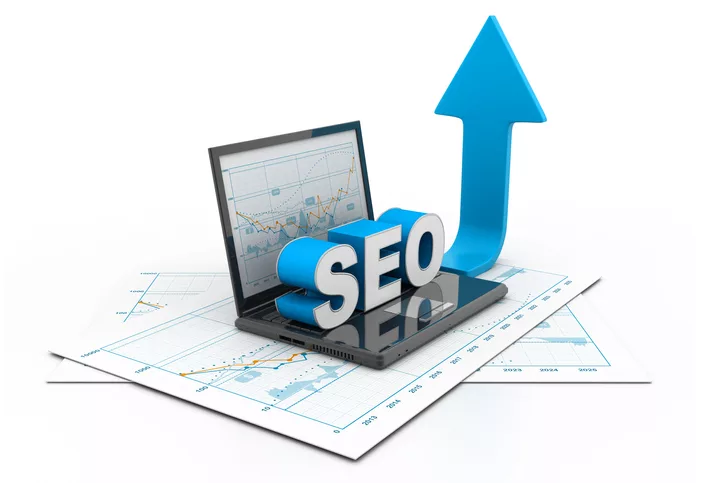How To Boost Your Search Engine Ranking In 15 days


Right now, someone is using Google to look for a new product, service, or solution to their problem, and your business is uniquely prepared to provide all of these things.
Will they eventually go to your site? If your website doesn’t show up on the first page of Google searches, sadly, it probably isn’t. We’ve developed a list of the best practices as one of the best SEO companies in Kochi to assist you in determining how to rank higher on Google. You may already be utilizing some of these concepts, while others may be completely new to you. In any case, go through each one and think about where you could make changes in the upcoming year.
Why Does Google Ranking Matter?
Google ranking matters for several reasons:
Visibility: Google is the most popular search engine, with billions of searches conducted every day. When your website ranks higher in Google’s search results, it gains greater visibility to potential visitors. People are more likely to click on websites that appear on the first page of search results, and the higher your ranking, the more exposure your website receives.
Organic Traffic: Higher rankings in Google often lead to increased organic (non-paid) traffic to your website. Organic traffic is valuable because it is free and sustainable. When your website ranks well for relevant keywords, it attracts users who are actively searching for the products, services, or information you provide.
Credibility and Trust: People tend to trust websites that rank higher in search results. Google’s algorithm aims to deliver the most relevant and trustworthy results to users. Therefore, a higher ranking can enhance your website’s credibility and build trust with potential visitors. This can lead to increased conversions, whether it’s making a purchase, signing up for a newsletter, or any other desired action.
Competitive Advantage: In many industries, competition for online visibility is fierce. Ranking well on Google gives you a competitive advantage over your rivals. If your competitors are ranking higher than you, they are likely capturing a larger share of the organic traffic and potential customers. By improving your ranking, you can level the playing field or even surpass your competitors.
Brand Awareness: Ranking higher in Google can significantly improve brand awareness. When people repeatedly see your website appearing at the top of search results, they become more familiar with your brand. Even if they don’t click on your website immediately, they may remember your brand when they need products or services related to your industry in the future.
Return on Investment (ROI): Investing time and effort into improving your Google ranking can yield a high return on investment. Compared to other marketing strategies, such as paid advertising, ranking well in organic search results can provide long-term benefits at a lower cost. While it may require time and resources upfront, the sustained traffic and visibility can lead to significant returns over time.
Steps to Increase Your Search Engine Rankings:
Increasing your search engine rankings requires a combination of on-page optimization, off-page optimization, and other strategies. Here are some steps to help you improve your search engine rankings:
Conduct keyword research: Identify relevant keywords and phrases that your target audience is likely to search for. Use tools like Google Keyword Planner or SEMrush to find popular keywords with manageable competition.
Optimize your website structure and design: Ensure that your website has a clear and logical structure that search engines can easily crawl and index. Use descriptive URLs, header tags (H1, H2, etc.), and a sitemap to improve your site’s organization.
Create high-quality, keyword-rich content: Develop valuable content that incorporates your target keywords naturally. Write informative articles, blog posts, product descriptions, or other types of content that address your audience’s needs and interests.
Optimize on-page elements: Pay attention to on-page optimization factors, such as meta tags (title tag, meta description), image alt tags, and internal linking. Include your target keywords in these elements, but avoid keyword stuffing.
Improve page loading speed: Optimize your website’s performance to ensure fast loading times. Use caching, compress images, minify code, and leverage content delivery networks (CDNs) to reduce page load times, which can positively impact your search rankings.Build high-quality backlinks: Earn backlinks from reputable and relevant websites to demonstrate your site’s authority. Focus on acquiring natural backlinks through guest blogging, influencer outreach, social media promotion, and creating link-worthy content.
Engage in social media promotion: Leverage social media platforms to share your content, engage with your audience, and increase brand visibility. Social signals, such as likes, shares, and comments, can indirectly influence your search engine rankings.
Improve user experience (UX): Enhance your website’s usability and user experience to keep visitors engaged. Ensure mobile responsiveness, easy navigation, clear calls-to-action, and fast-loading pages to improve overall user satisfaction.
Leverage local SEO: If you have a physical location or serve a specific geographic area, optimize your website for local search. Claim your Google My Business listing, include relevant local keywords, and encourage customer reviews.
Monitor and analyze your website’s performance: Regularly track your search engine rankings, organic traffic, bounce rate, and other relevant metrics. Use tools like Google Analytics and Google Search Console to gain insights and make data-driven optimizations.
